Empowering Communities through Data: My Experience as a Moderator and Instructor
Published:
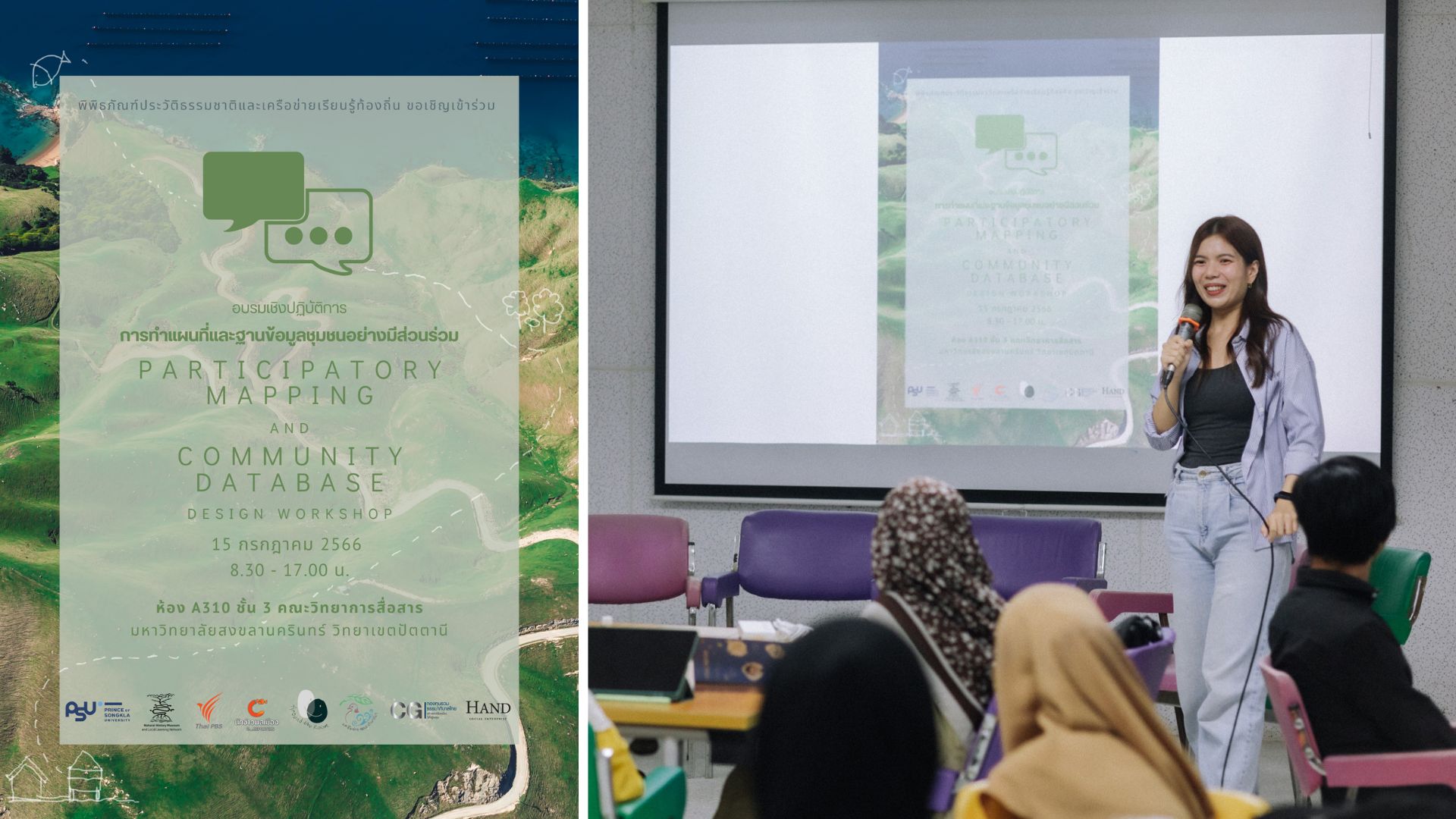
Recently, I had the privilege of acting as a moderator and instructor for a workshop titled “Participatory Mapping & Community Database Design”. The workshop was hosted by my team, Around the Room Studio, at Prince of Songkhla University - Pattani Campus. Participants represented five different communes from the provinces in southern Thailand, including Songkhla, Pattani, and Yala. The interests of the participants were varied and deeply connected to their local communities. These included a passion for protecting natural resources, a determination to protest against coming industrial districts that threaten their homes and environment, an eagerness for youth development and education, and a shared goal of community empowerment.
This was my maiden venture into hosting a discussion forum. Even though we held it in a private setting and there were only 40 participants, I found myself wrestling with nerves. The morning session was dedicated to discussing the role of data in community development and the importance of fostering data literacy at a grassroots level. We were joined by a regional journalist from Thai PBS, representatives from the Chana Conservation Network, a researcher specializing in Strategic Environmental Assessment (SEA), and one of our team members – a community architect with invaluable field experience. Our diverse group of speakers illustrated the power of data and its implications for the preservation of natural resources and community self-sustainability.
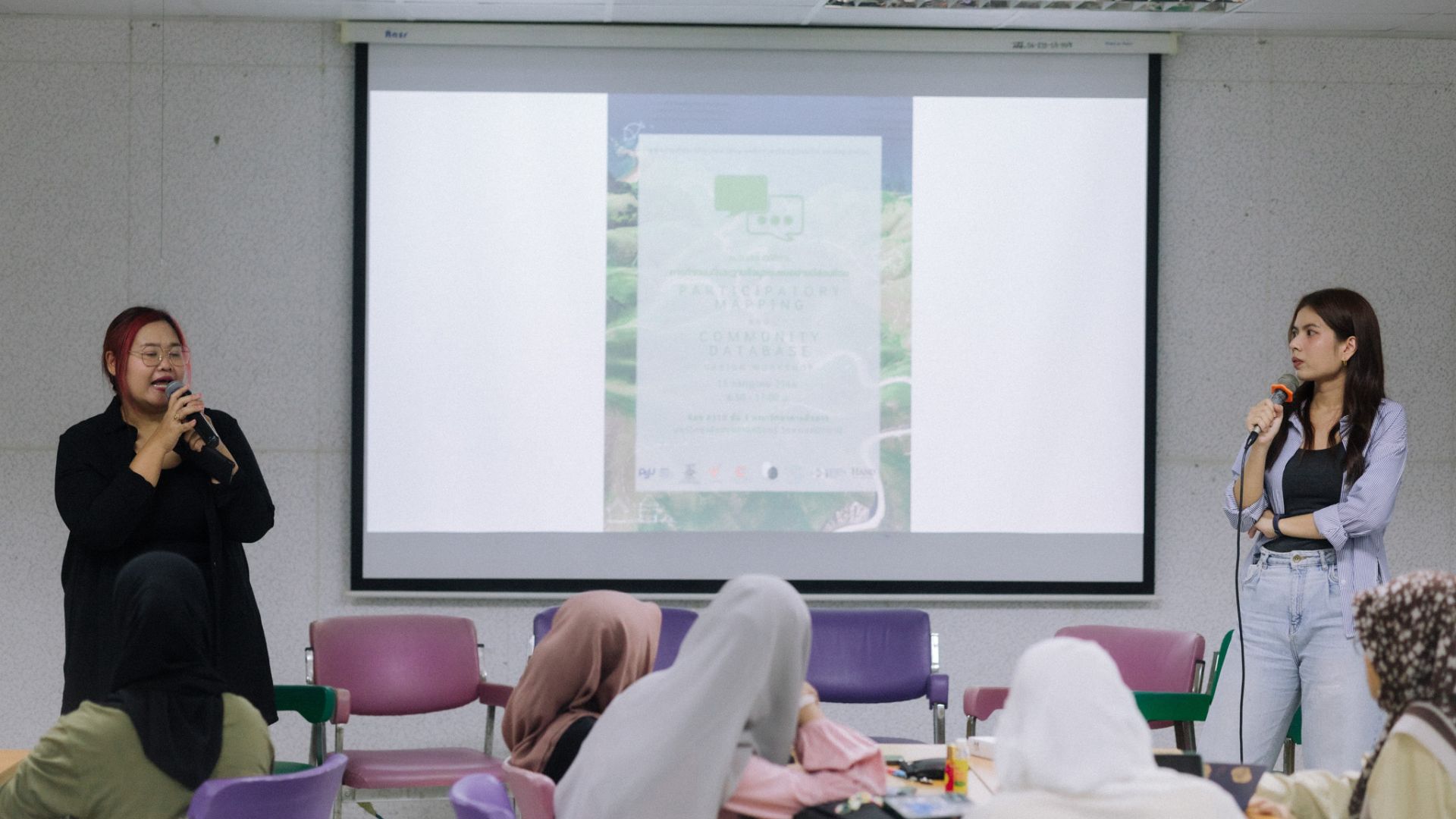
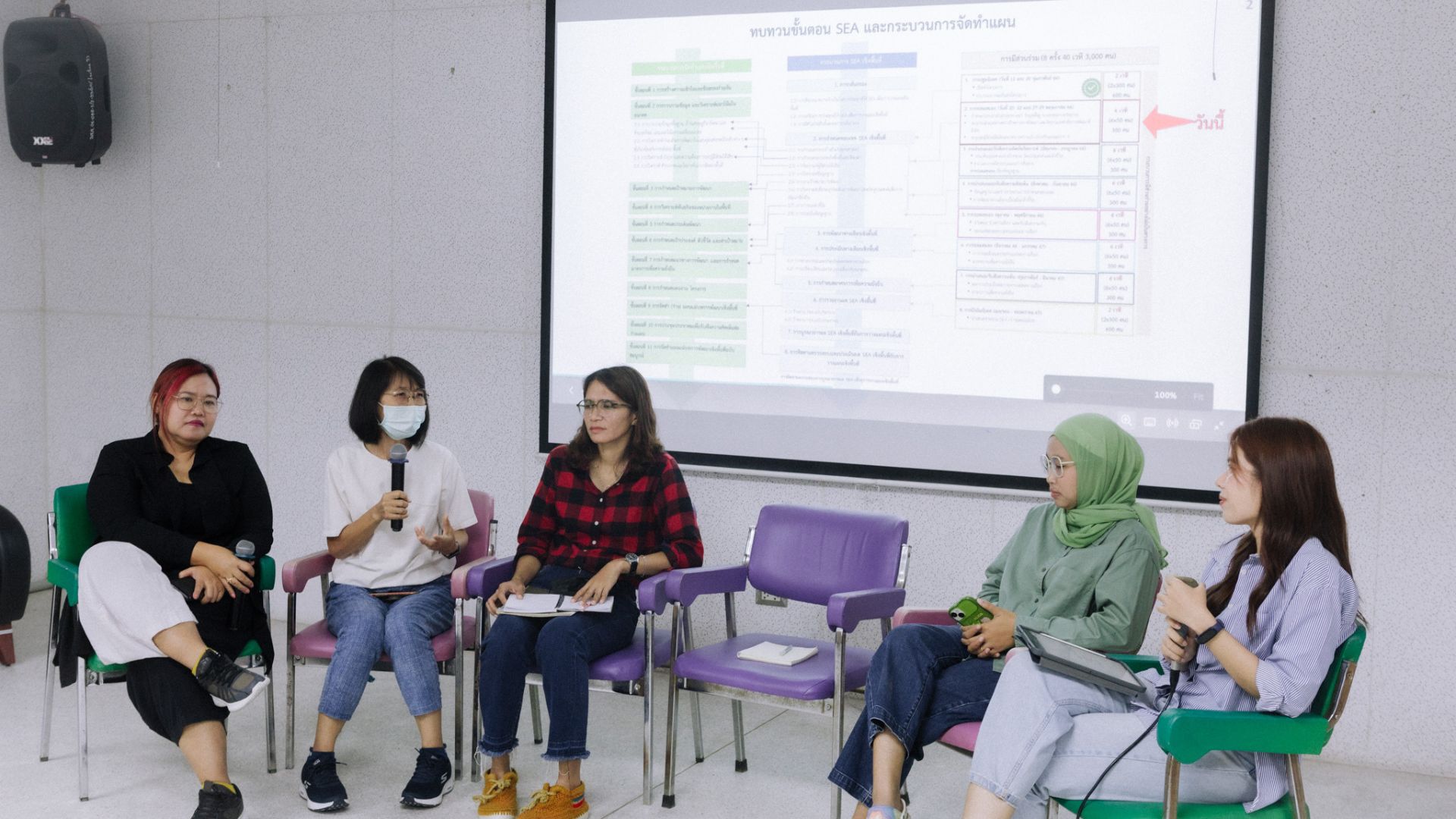
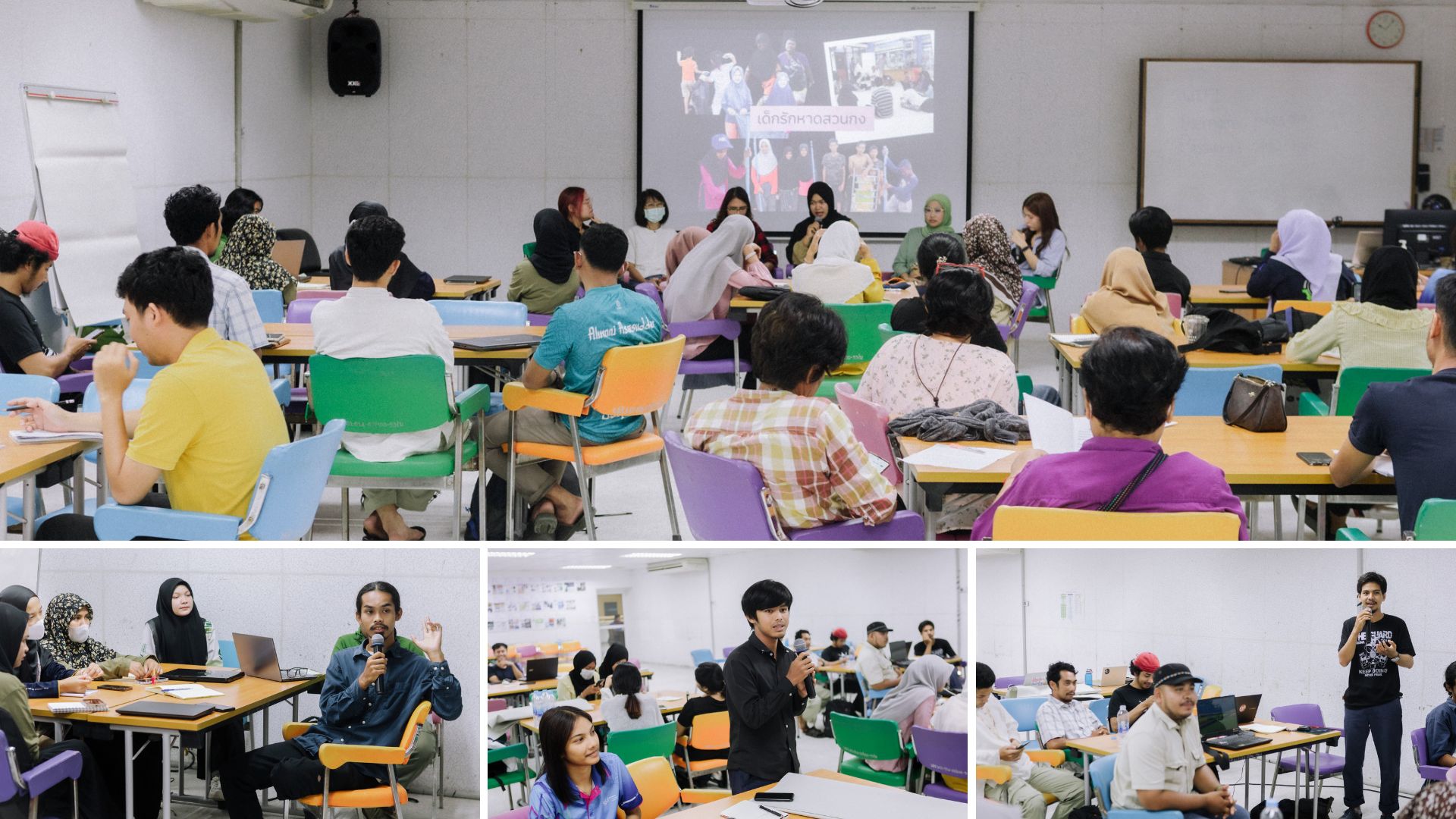
The discussion flowed smoothly with active participation from our attendees, sparking meaningful dialogue, and shedding light on the challenges they were facing. For a first-time moderator, I walked away with invaluable insights from the power of active listening and effective communication.
In the afternoon, I transitioned into the role of an instructor, teaching the participants how to use Notion, a free data management tool, to develop customized databases for their communities. However, teaching was not without its challenges. Taking care of a diverse age group ranging from 18 to 55 required careful adjustment of pace and meticulous observation to ensure everyone was included and engaged. That’s why I had to draw on all my past teaching experience to motivate the participants and get the class moving.
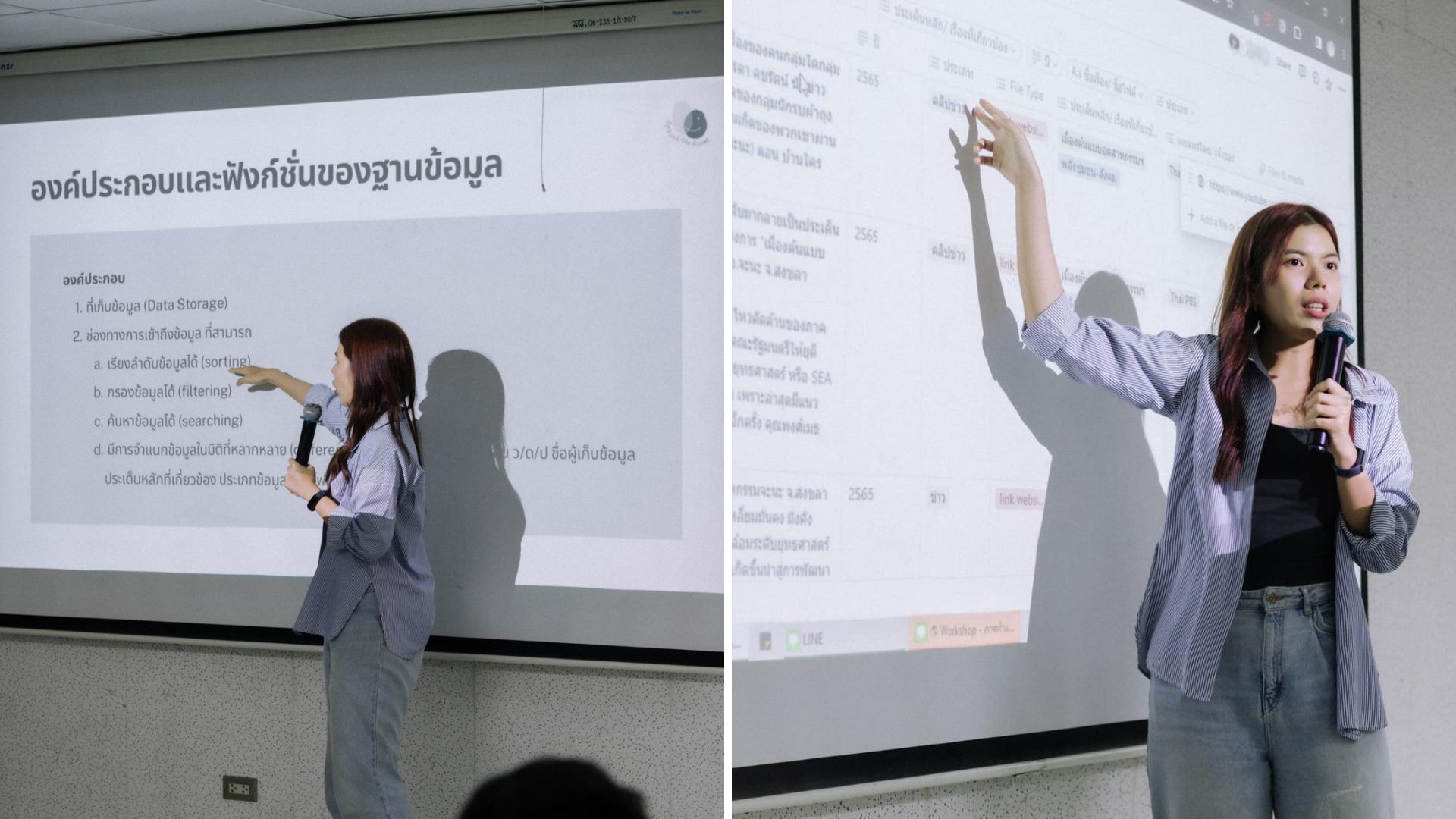
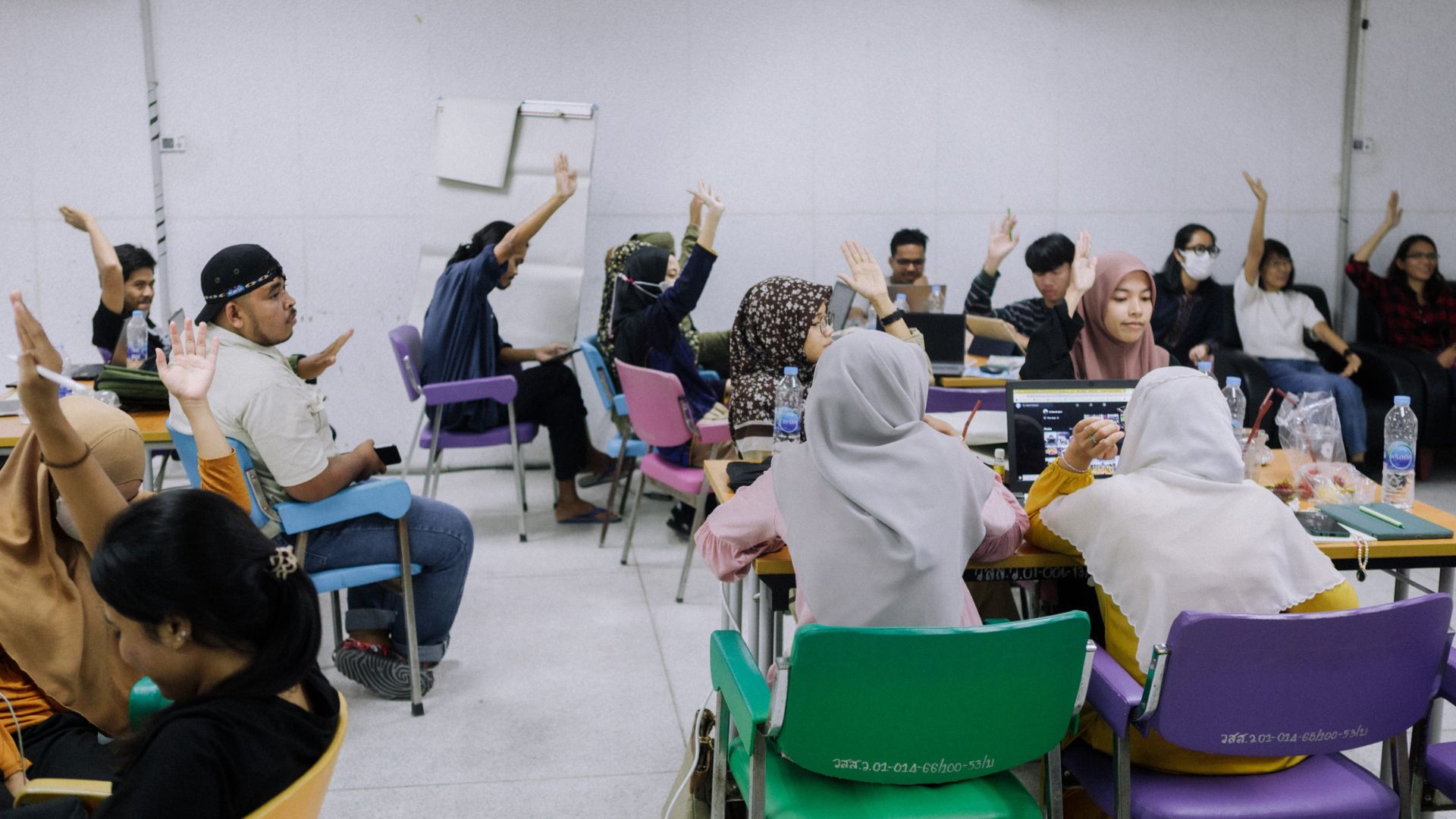
The final session of the workshop, in which the participants were tasked to apply their newly acquired tools to address ongoing problems in their communities, was perhaps my favorite. It provided me the opportunity to evaluate the progress of the participants. It was inspiring to see each group diligently working on their projects, with me and my team moving from one to another offering advice and guidance.
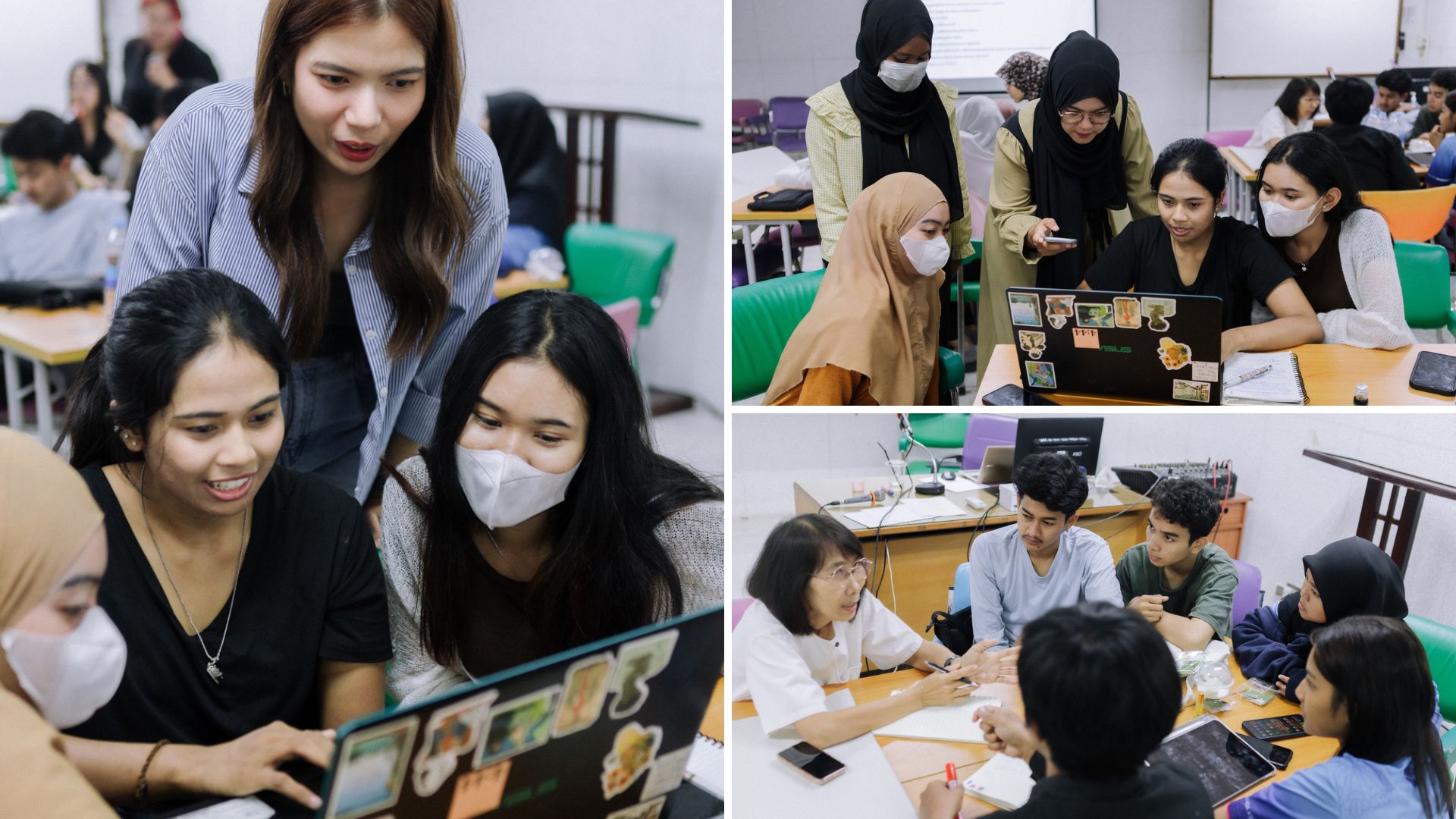
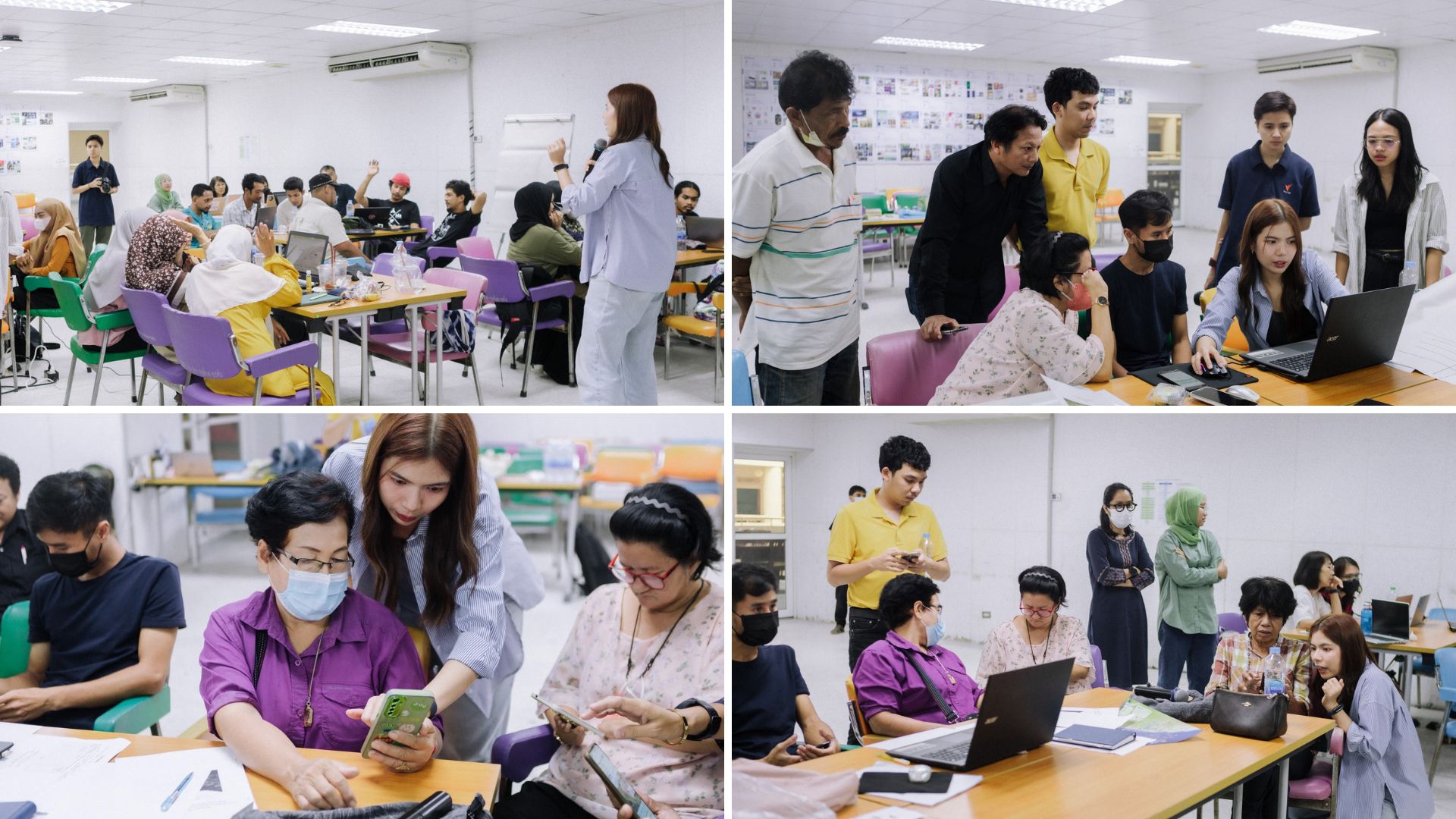
There was one participant who left a lasting impression on me. A resilient woman from the Troping community in Pattani, she swiftly mastered the tools, despite her physical disability. Her enthusiasm was contagious. Not only did she grasp the technical aspects quickly, but she also employed creative, out-of-the-box thinking, leading her team in completing their final task. What moved me further was her determination to continue learning and apply these skills for her community’s benefit. Days after the workshop, she reached out with her work, seeking feedback. Her spirit embodied the change we aimed to facilitate and was a testament to the impact and importance of our work.
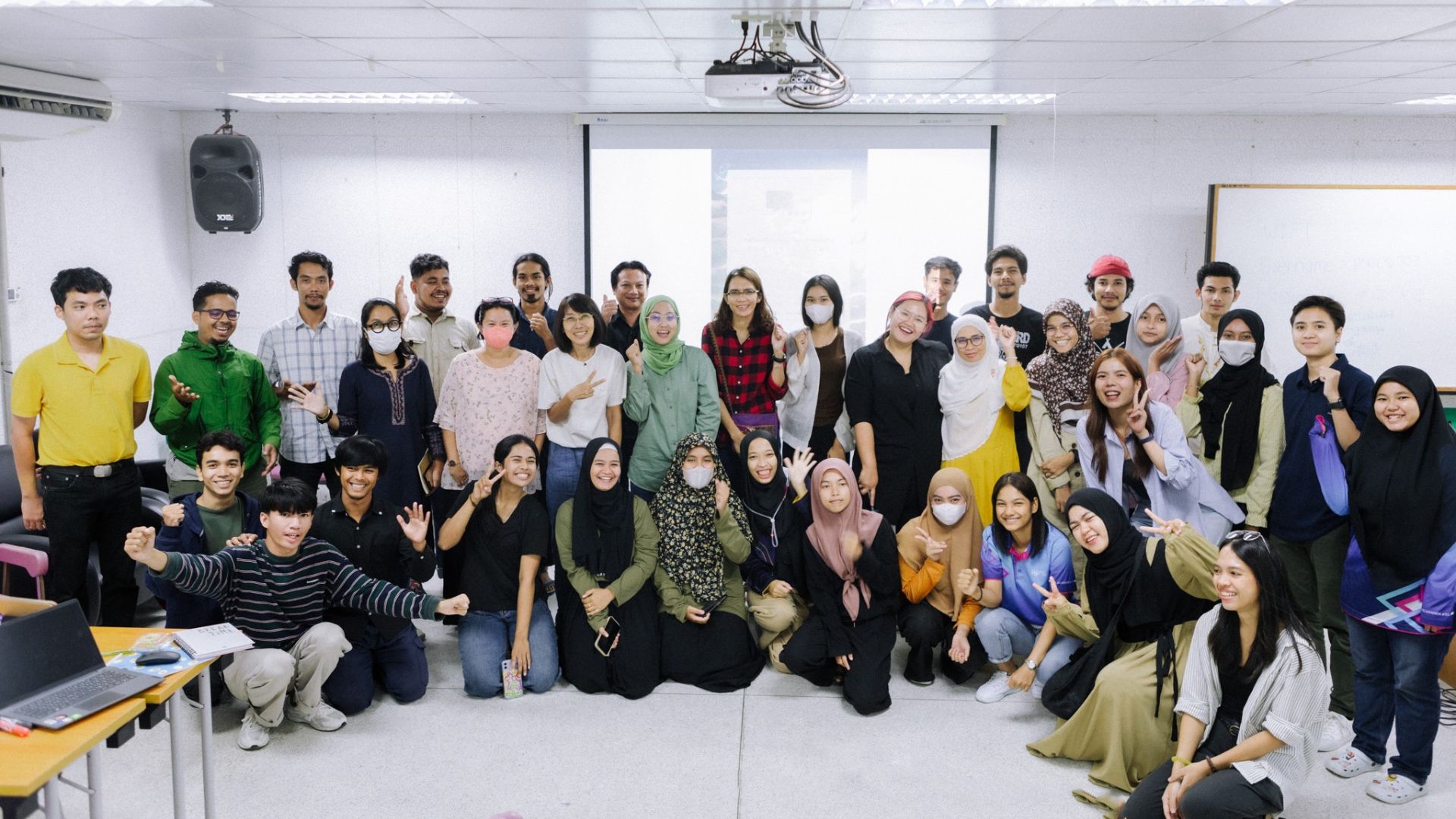
Looking back, there were moments of struggle and lessons learned, but the experience has been overwhelmingly positive. Seeing the participants’ determination to use the tools we taught them to better their communities was incredibly rewarding. I firmly believe that equipping people with knowledge and skills is the key to sustainable community development. Also, It’s in these moments, seeing real impact and change, that I’m reminded of the critical role of education in shaping a sustainable future.
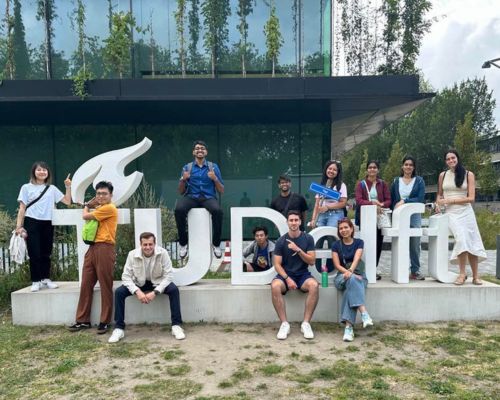 The time has finally come! I’ve arrived at TU Delft as a master’s student in the Engineering and Policy Analysis program! Delft and TU welcomed me with open arms, especially during the Introduction Program, where I met incredible new friends. It’s inspiring to be surrounded by people who share the same drive for self-improvement and the belief that we can create meaningful change through engineering, science, and interdisciplinary approaches.
The time has finally come! I’ve arrived at TU Delft as a master’s student in the Engineering and Policy Analysis program! Delft and TU welcomed me with open arms, especially during the Introduction Program, where I met incredible new friends. It’s inspiring to be surrounded by people who share the same drive for self-improvement and the belief that we can create meaningful change through engineering, science, and interdisciplinary approaches.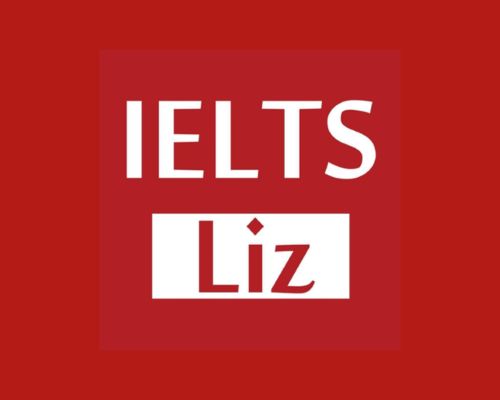 Have you ever heard of or used IELTS Liz ? This post is about Liz, the owner of IELTS Liz. It’s an IELTS guide platform that has helped me develop my academic English skills. Even though I learned English through many platforms and teachers, her website was actually helpful, especially for writing—the skill I spent most of my time improving. I read almost every tip, trick, and free example given on her site. …
Have you ever heard of or used IELTS Liz ? This post is about Liz, the owner of IELTS Liz. It’s an IELTS guide platform that has helped me develop my academic English skills. Even though I learned English through many platforms and teachers, her website was actually helpful, especially for writing—the skill I spent most of my time improving. I read almost every tip, trick, and free example given on her site. …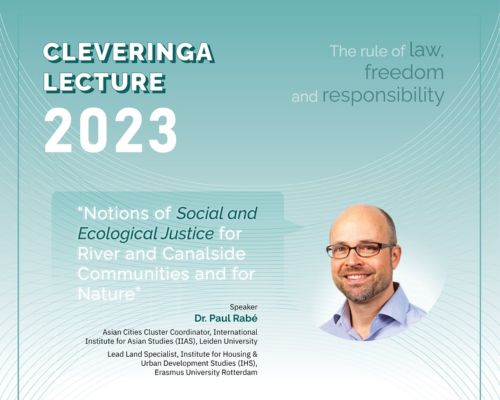 On November 22nd, 2023, I had the opportunity to attend the Cleveringa Lecture 2023 on the topic Notion of Social and Ecological Justice for River and Canalside Communities and for Nature at the Royal Netherlands Embassy in Thailand. This event, a collaboration between the embassy and the Urban Futures & Policy Research Unit of Thammasat University’s Faculty of Architecture and Planning, was more than just an academic gathering for me. It represented a fusion of my personal passion …
On November 22nd, 2023, I had the opportunity to attend the Cleveringa Lecture 2023 on the topic Notion of Social and Ecological Justice for River and Canalside Communities and for Nature at the Royal Netherlands Embassy in Thailand. This event, a collaboration between the embassy and the Urban Futures & Policy Research Unit of Thammasat University’s Faculty of Architecture and Planning, was more than just an academic gathering for me. It represented a fusion of my personal passion …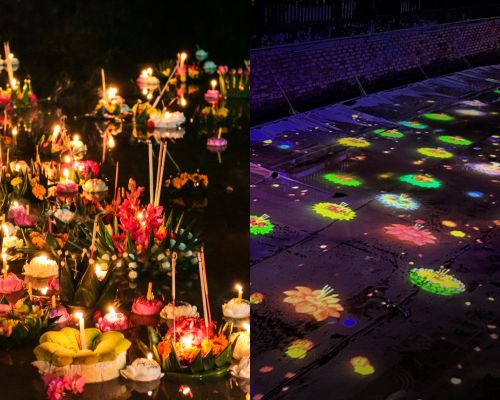 In recent years, it’s become clear that some of our most cherished traditions have unintended consequences on the environment. The Loy Krathong Festival in Thailand is a prime example. In 2022 alone, 572,603 krathongs were set afloat in the rivers of Bangkok. While 95.7% were made from biodegradable materials, the remaining 4.3% consisted of foam blocks that could be in our waterways for up to 400 years if not properly managed. Even materials like …
In recent years, it’s become clear that some of our most cherished traditions have unintended consequences on the environment. The Loy Krathong Festival in Thailand is a prime example. In 2022 alone, 572,603 krathongs were set afloat in the rivers of Bangkok. While 95.7% were made from biodegradable materials, the remaining 4.3% consisted of foam blocks that could be in our waterways for up to 400 years if not properly managed. Even materials like …